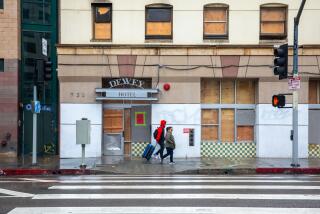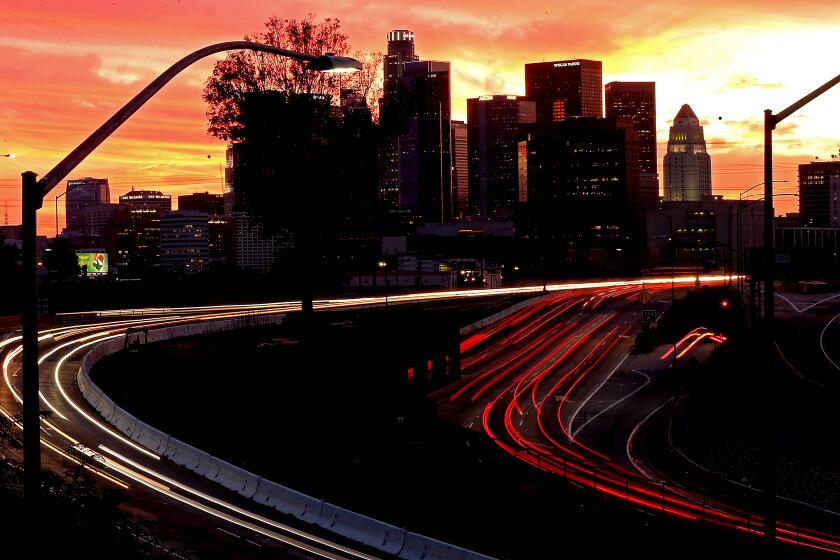Readers React: Fighting homelessness requires money and political will
To the editor: This week on successive days, I read with consternation and sadness of a multi-generational political process unable to get results. Steve Lopez’s and Sandy Banks’ columns on skid row bring clarity to a disgraceful problem that Angelenos seem OK with: the “out of sight, out of mind” mentality that somehow it is OK to have so much homelessness and mental illness concentrated in a designated area of downtown.
The frustrating part for me is that the solution lies in the hands of our elected local leaders, and always has. It’s not an easy sell, but great politicians manage their way through political barriers and shape public opinion through thoughtful and purposeful planning.
For more than 100 years, we have wrestled with various approaches to cleaning up this area, but as Banks and Lopez correctly recognize, for permanent change to happen, there has to be a core resolve to fix the underlying issue of mental illness and purposeful transitioning. We owe it to them, to ourselves and to our city.
Dan Angress, Manhattan Beach
..
To the editor: Banks’ column was right on the money. And we’re talking about money.
This is not just a police problem. As Banks points out, it’s our problem, the people of the city and county of Los Angeles. If we spent as much money on community-based treatment as we spend on the police who are trying to get mentally ill addicts to behave normally, we could solve this problem.
But we must also look at our policies. How did “Africa,” the homeless man who was killed Sunday, get on skid row? He reportedly may have suffered from mental illness, but why wasn’t he in community treatment?
If we don’t demand better from our elected officials, this every-moment, everyday tragedy will never end.
Marsha Temple, Los Angeles
The writer is executive director of the nonprofit Integrated Recovery Network.
..
To the editor: The reason nothing gets done about people who live on the streets is that it has become acceptable for people to live on the street.
What kind of reaction would a commercial asking for donations get if it showed people sleeping on the street? Would it engender the same amount of sympathy that people show for mistreated animals?
I think part of the problem is that people believe that someone sleeping on the street is there because of his or her own decisions. If only they had tried, they wouldn’t be there.
But for many who end up on the street, society’s denial of mental health services led them to homelessness. People with mental health issues cannot make rational choices.
If we want to help the homeless, it means having housing, psychiatric care, counseling, social services and follow-up services.
Linda Shabsin, Diamond Bar
..
To the editor: As Lopez and Banks emphasize, providing for the homeless is a costly but important human issue that Los Angeles must address.
While I offer no magical solution, until we successfully solve our existing problems, it seems imprudent to increase our numbers via greater immigration.
Diane McDowell, Los Angeles
Follow the Opinion section on Twitter @latimesopinion and Facebook
More to Read
A cure for the common opinion
Get thought-provoking perspectives with our weekly newsletter.
You may occasionally receive promotional content from the Los Angeles Times.






